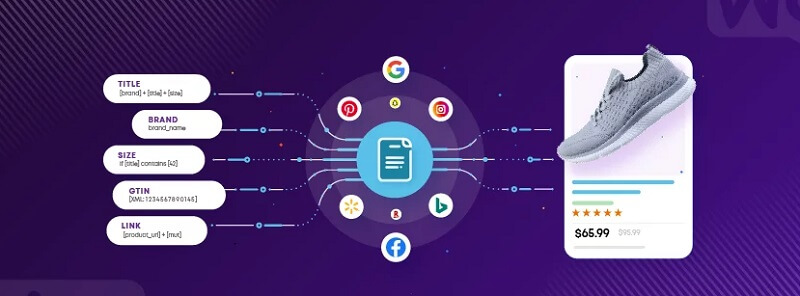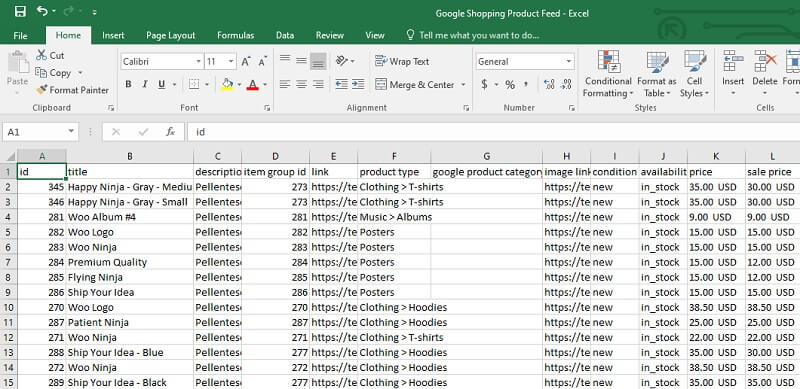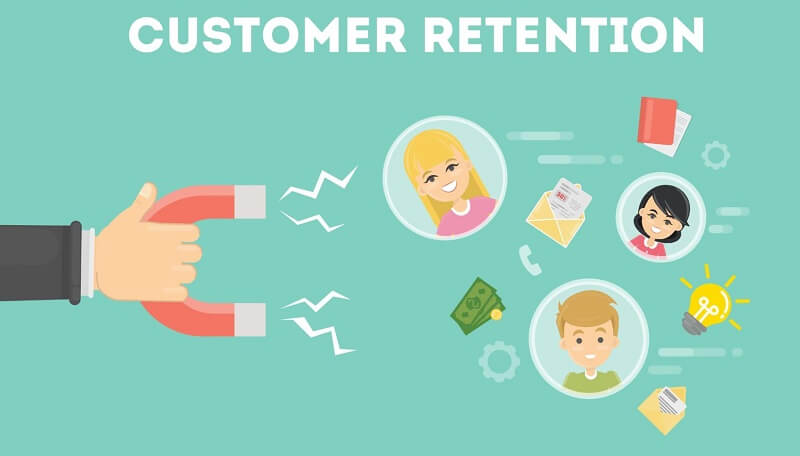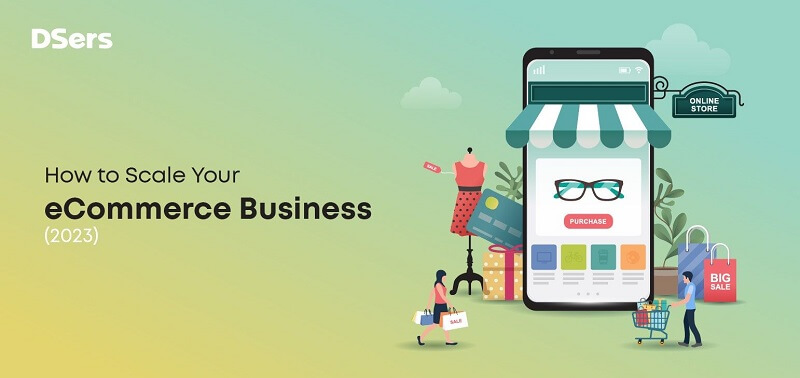Global eCommerce sales are expected to grow by over 10% this year. Online shopping is projected to account for 24% of all retail sales by 2026. Can you guess what will be the sales amount for that 24%? Over 8 trillion! Moreover, according to studies, there will be a staggering 95% increase in online shopping by 2040.
This substantial growth in online shopping highlights the significant shift in consumer behavior and preferences. Such a remarkable increase in numbers and percentages showcases the immense impact eCommerce is having on the retail industry worldwide.
This also means the competition is already cut-throat and fierce and will grow day by day. In this dynamic and competitive business landscape, scaling your eCommerce business has become more crucial than ever.
As technology advances and consumer expectations evolve, staying ahead of the curve and expanding your operations is essential for long-term success. Whether you’re a startup looking to grow rapidly or an established online retailer aiming to reach new heights, understanding the strategies and tactics involved in scaling your eCommerce business is paramount.
In this article, we will provide you with valuable insights and effective tips on how to scale eCommerce business in 2023.
Let’s dive in.
What does scaling an eCommerce business means?

Imagine you have a lemonade stand, and folks start lining up to buy your awesome lemonade. As you sell more and more cups, you realize your tiny stand can’t handle the crowd anymore. You need to level up and make your lemonade biz bigger and better!
Scale an ecommerce business is kind of like that. When you start an online store, and it takes off, you might need to grow and expand to meet the increasing demand for your products. It’s about making your online store more efficient, powerful, and able to handle more customers and orders.
The ultimate goal of scaling an eCommerce business is to handle more sales and growth without chaos. It’s like turning your lemonade stand into a fully-stocked factory so that everyone can quench their thirst for your lemonade!
Scaling your online business could involve various things, including:
Infrastructure and technology
Upgrading or optimizing your technology infrastructure, such as servers, hosting, and website platforms. You need to upgrade these to handle increased traffic, transactions, and data processing efficiently.
This may involve implementing scalable solutions, utilizing cloud services, and ensuring robust website performance.
Logistics and fulfillment
You need to streamline and enhance the supply chain, inventory management, warehousing, and shipping processes to handle higher order volumes, faster delivery times, and more complex logistics. This can involve partnering with third-party logistics providers or investing in warehouse management systems and automation.
Marketing and advertising
To scale eCommerce business, you need to put more effort into marketing to reach more people and get more customers. This includes developing comprehensive marketing strategies, leveraging digital marketing channels (such as social media, search engine optimization, email marketing, product feed marketing, influencer collaborations, and paid advertising), and analyzing data to optimize marketing campaigns.
Customer support
For the scale of eCommerce business, you need to scale customer support operations to handle a larger customer base and provide timely assistance. This may involve hiring additional support staff, implementing helpdesk software or chatbots for automation, and establishing efficient communication channels for customer inquiries and issue resolution.
Scalable business model
You need to evaluate and modify the business model to accommodate growth effectively. This can involve exploring new product lines or expanding into new markets, optimizing pricing strategies, refining the sales funnel, and identifying opportunities for upselling and cross-selling.
Financial planning
To scale eCommerce business, you must ensure the availability of adequate financial resources to support the scaling efforts. This includes analyzing cash flow projections, securing funding (if necessary), managing inventory and working capital, and monitoring key financial metrics to maintain profitability.
We will dig into more details on how to scale eCommerce business with helpful tips later in the article.
Data Analysis and optimization
You must utilize data analytics and insights to make informed decisions, optimize operations, and improve the customer experience. This involves tracking and analyzing key performance indicators (KPIs), customer behavior, conversion rates, and other relevant metrics to identify areas for improvement and drive growth.
Why should you scale your ecommerce business?

Scaling your eCommerce business offers several benefits and reasons why it is advantageous:
Increased revenue and profits
Scaling your eCommerce business allows you to tap into a larger market, attract more customers, and generate higher sales volumes. With increased sales, you have the potential to boost your revenue and achieve greater profitability.
Market expansion
Scaling enables you to expand your market reach by targeting new customer segments. It also allows you to enter new geographical regions. This diversification reduces your dependency on a single market or customer segment. As a result, your business becomes more resilient to market fluctuations and changes in consumer behavior.
Competitive advantage
Scaling your eCommerce business positions you to stay ahead of competitors or gain a competitive edge in the market. By expanding your operations, optimizing processes, and offering an enhanced customer experience, you can differentiate yourself from competitors and attract more customers.
Economies of scale
As your business scales, you can benefit from economies of scale. Bulk purchasing, negotiating better deals with suppliers, and optimizing operational efficiency can result in cost savings and improved profit margins. Scaling also allows you to spread fixed costs over a larger revenue base, making your business more cost-effective.
Enhanced brand image
Successful scaling can contribute to building a strong brand image. With increased visibility, market presence, and customer base, your brand gains credibility and recognition. This can lead to improved customer loyalty, word-of-mouth referrals, and a positive reputation within your industry.
Innovation and growth opportunities
Scaling your eCommerce business creates opportunities for innovation and growth. With increased resources and revenue, you can invest in research and development, explore new product lines or markets, and adopt emerging technologies. This fosters business growth and positions you for long-term success.
Attracting investors or partnerships
A scalable eCommerce business is often more attractive to investors or potential business partners. Investors are more likely to see the potential for a significant return on investment when they perceive a business as scalable. Scaling your eCommerce business can open doors to funding opportunities, strategic partnerships, and collaborations that can further fuel growth.
Personal and professional development
Scaling a business requires strategic thinking, problem-solving, and leadership skills. It presents an opportunity for personal and professional growth as you navigate the challenges and complexities of scaling operations, managing teams, and making critical business decisions.
What is the difference between scaling and growing your business?
While scaling and growing a business are often used interchangeably, there is a subtle distinction between the two concepts.
Imagine you have a little plant in your garden, like a cute little tomato plant. Now, growing your business is like taking care of that plant so it gets bigger and healthier. You water it, give it sunlight, and watch it grow tall with more leaves and fruit.
Scaling your business, on the other hand, is like putting that tomato plant on steroids (not literally, of course!). It’s not just about making it bigger; it’s about making it super-efficient and able to handle a whole bunch of tomatoes!
So, growing your business means steadily expanding and getting more customers, making more sales, and increasing your profits little by little. It’s like nurturing your plant, step by step.
But when you scale eCommerce business, you’re taking big steps to handle a massive increase in customers and orders. It’s about upgrading and supercharging your whole operation to deal with a huge demand for your products or services.
Think of it like this: growing is a gradual process like your plant growing taller day by day. Scaling is like a sudden boost that allows you to handle a crazy amount of business without falling apart.
Both are awesome for your business, but scaling is like the turbo mode for really taking things to the next level and handling a whole lot more than you ever imagined!
How to scale your ecommerce business: eCommerce scaling tips
In this section, we will share some eCommerce scaling secrets, scaling success strategies, and strategic scaling tips for eCommerce.
Develop a scalable infrastructure

Okay, so you’ve got your online store up and running, but now it’s time to think big! Make sure your website is super strong and can handle all the people rushing in to buy your awesome stuff. You want it to load lightning fast, look great on mobiles, and give your customers an easy and smooth shopping experience.
Ensure that your website, hosting, and infrastructure can handle increased traffic and transactions. Optimize your website for fast loading times, mobile responsiveness, and a seamless user experience.
Here’s how you can make it happen:
Upgrade your website
Optimize for speed and responsiveness to handle heavy traffic and keep customers happy.
Choose reliable hosting
Invest in quality hosting that ensures your site is always up and running smoothly.
Embrace cloud services
Utilize scalable cloud storage to avoid running out of space and accommodate business growth.
Monitor and optimize
Continuously analyze data to identify bottlenecks and areas for improvement in your website’s performance.
Prepare for peak times
Load-test your website for handling spikes in traffic during busy periods.
Expand your market reach

Expanding your market reach is like setting sail on a thrilling adventure to find new treasure troves of customers. To make it happen, let’s break it down into some steps:
- Explore new customer segments: Find untapped groups interested in your products and tailor your marketing to meet their needs.
- Target new geographic markets: Expand to different regions or countries by adapting your marketing to suit local preferences.
- Set sail with digital marketing: Utilize SEO, PPC advertising, and social media marketing to reach a wider audience.
- Collaborate with influencers: Partner with influential figures to promote your products and gain more visibility.
- Navigate the adventure: Embrace creativity and strategic planning as you discover new customers and markets.
In summary, expanding your market reach is like an exciting adventure that involves exploring new opportunities and using digital marketing tools to attract a broader audience.
Enhance customer experience

To scale your eCommerce business effectively, enhancing the customer experience is a crucial strategy. Here are some tips to achieve this:
Provide outstanding customer service
Offer prompt and courteous support to address customer inquiries and concerns. Train your support team to deliver high-quality assistance and create a positive impression.
Offer multiple communication channels
Ensure accessibility by providing various channels for customers to reach out, such as live chat, email, and phone support. Being available on multiple platforms demonstrates a commitment to excellent service.
Personalize the shopping experience
Utilize customer data and preferences to offer personalized product recommendations and targeted promotions. Tailoring the experience to individual needs enhances customer satisfaction and fosters loyalty.
Streamline returns and refunds
Implement a seamless and transparent returns process. Make it easy for customers to return items if necessary, and handle refunds promptly and efficiently.
Implement loyalty programs
Develop loyalty programs to reward repeat customers and encourage brand loyalty. Offer exclusive benefits, discounts, or rewards to incentivize continued engagement.
Listen to customer feedback
Actively seek and analyze customer feedback to identify areas for improvement. Incorporate customer insights into your business strategies and decision-making processes.
By focusing on enhancing the customer experience, your eCommerce business can cultivate customer loyalty, foster positive brand perception, and pave the way for sustainable growth and scalability.
Leverage product feed marketing

Just selling on your eCommerce/WooCommerce website wouldn’t be enough if you want to compete with your rivals and grow your business. You need to promote and sell your products on multiple channels to reach a wider audience.
Product feed marketing is a goldmine of a marketing strategy to scale your eCommerce business. With product feed, you can promote your products on multiple channels and reach millions of potential customers.
You can list and sell your products on marketplaces, shopping engines, price comparison sites, affiliate sites, and also in social media platforms with a product feed. In addition to that, you will require a product feed to run product shopping ads.
A product feed is a spreadsheet file that contains your eCommerce site’s product data. It includes all your product details, such as title, description, price, availability, etc.

Let’s say you have a WooCommerce store with 50+ products. You can create feed files for your products and list them in marketplaces like Walmart, eBay, Amazon, Target, etc. You can also list and promote in price comparison engines such as Bing Smart Shopping, Google Shopping, PriceGrabber, etc.
Social media sites like Facebook, Snapchat, Instagram, etc., also require you to submit product feeds to promote your products on their platform. Moreover, you must submit a product feed file to run shopping ads on these platforms.
If you have a WooCommerce store, you can simply install a woocommerce product feed plugin to generate product feed files. These plugins allow you to create feeds for hundreds of channels with minimum effort. Most of the generation process is automated.
Moreover, these plugin allows you to connect to the channels through URLs. As a result, you won’t need to worry about uploading or updating the feeds manually when you make any changes to your Woo store.
Organized inventory management

To scale your eCommerce business successfully, establish a robust inventory management system. This means putting in place streamlined processes that make it easy to keep track of orders and fulfill them quickly.
The goal is to avoid stock-outs, where popular products run out of stock. Or avoid overselling, where you accept orders beyond available inventory.
Real-time inventory data is a useful tool in this effort because it lets you adjust pricing strategies and quickly restock items that are selling out. By making sure your inventory management is well-run, you can keep customers happy and maximize revenue.
Embrace automation
As your eCommerce business grows, so does the volume of tasks that require attention. To stay agile and efficient, leverage automation tools and sophisticated software.
These technological allies can handle repetitive tasks such as order processing, inventory updates, and customer communication. By automating these processes, you can free up valuable time and resources for your team to focus on strategic decision-making, product innovation, and exploring new growth opportunities.
Automation not only increases productivity but also minimizes the risk of human errors, allowing your business to run smoothly and efficiently.
Data-driven decisions
In the digital age, data holds immense power. By using data analytics, you can gain valuable insights into your eCommerce business.
Analyze customer behavior, sales trends, and marketing performance to make smart decisions. Keep track of key metrics to see how well your marketing is working and find areas to improve.
With this knowledge, you can fine-tune your strategies, use resources wisely, and keep improving your operations.
Forge strategic partnerships
Expanding your market reach is crucial for growing your eCommerce business. One effective way to do this is by forming strategic partnerships with other businesses, influential people, or industry partners.
By teaming up with others in your field, you can reach new groups of customers and access different marketing channels. Collaborating through joint ventures, cross-promotions, or affiliate partnerships offers chances for both parties to grow together.
Building strong alliances lets you combine your strengths, expand your presence in the market, and create situations where everyone benefits. It’s a win-win scenario that helps your business move forward successfully.
Prioritize customer retention

While acquiring new customers is essential, retaining existing ones is equally crucial. Cultivating customer loyalty is a key factor in sustaining long-term growth and success.
To achieve this, invest in customer retention strategies that keep your valued customers coming back for more. Implement customer loyalty programs that reward repeat purchases and offer exclusive perks.
Personalize your email marketing to engage with customers on a more personalized level, showing them that you understand their needs. Furthermore, thoughtful post-purchase follow-ups demonstrate that you genuinely care about their satisfaction.
By taking care of these strong relationships, you can make loyal consumers who will help your eCommerce business grow steadily.
Stay innovative
The eCommerce world is always changing, with new trends and technologies popping up all the time. To stay ahead of the competition and stay relevant, it’s crucial to be innovative.
Keep a close eye on industry trends, what customers prefer, and new technologies. Embrace those technologies that can make your eCommerce business better and give your customers a great experience.
Regularly check and improve your products to meet the changing needs of your customers. By showing that you’re committed to innovation, you position your business as a forward-thinking leader in the industry, ready for long-term growth and success.
Wrap up
Clearly, there are a variety of options for efficiently expanding your business in 2023. What matters most is achieving long-term success through steady expansion. Doing so will pave the way for your company’s success.
By following the above-mentioned strategic scaling tips for eCommerce, your online business will sail towards success and confidently navigate the challenges of scaling.
Hope this guide to scale of eCommerce business was of help to you. Let us know in the comments if you have any questions or suggestions.



